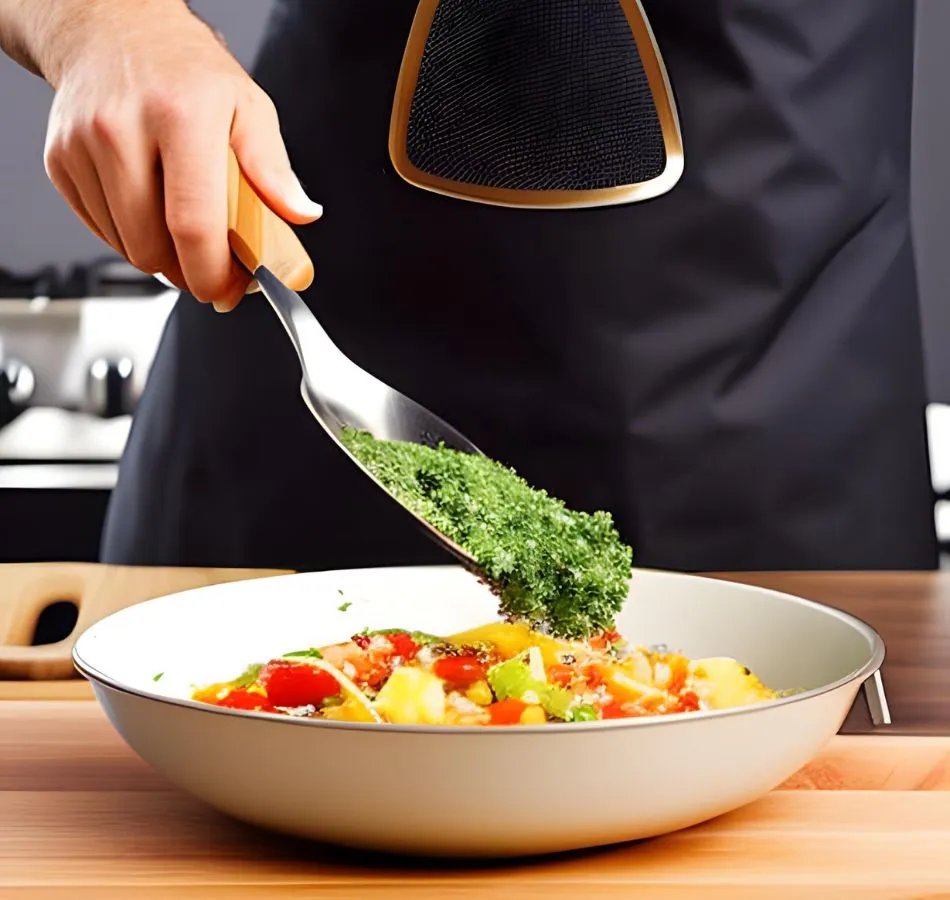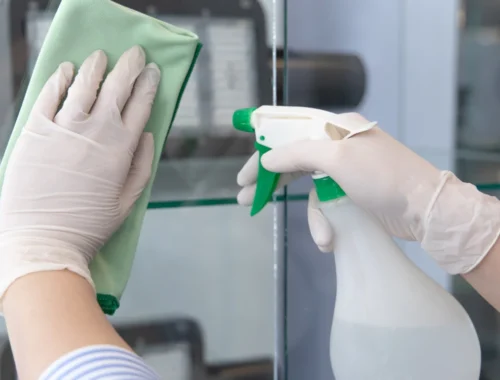
Cooking Tips for Beginners
Table of Contents : Make your reading easy
ToggleSimple cooking tips and tricks for beginners
To improve the quality of your food and help you maintain a healthy weight, nutrition experts frequently advocate healthy cooking tips at home rather than dining out (or ordering takeaway). However, research shows that eating at home does not inevitably imply that your diet is A+.
In fact, a June 2016 research published in Nutrition Research and Practice of almost 5,000 individuals concluded that to make a difference in your homemade meals, you must utilize healthy cooking methods and quality, nutritional components.
If you’re more comfortable on Open table than in your own kitchen, it’s time to plunge in and learn how to cook for yourself. Begin with these guidelines for beginner, which will not only put you in charge of your meals but will also help you eat more healthfully in the long run. Stay tuned and carefully ready all the best cooking tips and tricks;
1. Read Recipes Carefully
The first thing to do when cooking is to make sure that you read the recipe carefully before you start. This may seem like an obvious thing to do, but you would be surprised at how many people do not do this and then end up with a mess.
When you read the recipe, pay attention to the ingredients and the methods that are used. Make sure that you understand what each step is and that you have all of the necessary ingredients. If you do not have an ingredient, do not be afraid to ask a friend or family member if they have it or to look for a substitute.
If you are unsure about anything in the recipe, it is always better to ask questions or to look for clarification online or in a cookbook. The last thing you want is to ruin a dish because you did not understand a step.
So, next time you are getting ready to cook, make sure to take the time to read the recipe carefully and follow recipe step by step.
2. Know Your Ingredients
It’s easy to make mistakes when cooking, so it’s important to understand what ingredients you need before you start. If you’re not sure where to find something, check out our ingredient guide.
Before you start cooking, it’s important to understand the ingredients you’re using.
Not all ingredients are created equal and some can be harmful if not handled correctly. Here are a few tips to help you know your ingredients:
- When shopping for groceries, read the ingredients carefully. Many ingredients have hidden dangers, such as harmful chemicals or allergens.
- When cooking at home, use whole, unprocessed ingredients. Processed foods often contain unhealthy additives and preservatives.
- When in doubt, ask your friends or family for their opinion. They may have experience cooking with certain ingredients or know of hidden dangers.
3. Start with Fresh Ingredients
One of the best ways to make healthy and delicious meals is to start with fresh ingredients. Not only do they taste better, but they’re also more nutritious. When you use fresh ingredients, you know exactly what’s going into your food and can control the quality of the finished product.
If you’re not used to cooking with fresh ingredients, it can be a bit of a learning curve. But it’s worth it! Here are a few tips to help you get started:
- Shop at farmers markets or specialty stores.
- Plan your meals in advance so you know what ingredients you need.
- Pre-prepare some ingredients, like chopping vegetables or cooking grains ahead of time.
- Use recipes as a guide, but don’t be afraid to get creative and experiment.
- And most importantly, enjoy the process! Cooking with fresh ingredients is a great way to connect to know about the real nature of the food.
You’ll save yourself a lot of trouble by starting with fresh ingredients. This means buying only the items you need and using them as soon as possible. Also, avoid pre-packaged foods because they often contain preservatives that can affect the quality of your food.
4. Measure Ingredients Carefully.
When you’re cooking at home, it’s important to measure your ingredients carefully. This will help you get the best results from your dish.
If you are a beginner and don’t measure your ingredients carefully, you run the risk of adding too much or too little of something. This can ruin the taste of your dish and make it less enjoyable.
When measuring, be precise and use the proper utensils. For example, if you’re measuring liquid ingredients, use a measuring cup. And if you’re measuring dry ingredients, use a measuring spoon.
By taking the time to measure your ingredients carefully, you can ensure that your dish turns out just the way you want it. So, the next time you’re in the kitchen, be sure to take the time to measure your ingredients carefully.
5. Have All Necessary Tools and equipment at Hand
There are several devices and tools and equipment on the market that claim to make your culinary life easier, but just a handful are vital in my kitchen.
This is my simplified list for aspiring home cooks, those living in small apartments, or those on a limited budget. These, in my opinion, are the essential tools and equipment for beginners for beginning cooks.
Knife for a Chef
If you have the money, consider investing in a decent chef’s knife, which will last you for many years and will make your life in the kitchen much simpler.
Chopping Board
There are many of choices available to suit all budgets, so avoid using your plates or countertops whenever possible. To reduce cross-contamination, consider purchasing two boards so that raw foods may be processed separately.
A saucepan and a nonstick frying pan are ideal.
This provides you a lot of versatility in the recipes you may produce and can reduce cooking times if you use both at the same time for more complicated dishes. If you want to cook on a budget, I propose a deeper frying pan (preferably with a lid), which can handle both roles and offer novices access to most recipes.
An oven-safe dish
If you don’t have an oven, don’t worry about it. However, if you do, you should consider purchasing an oven-safe deep dish (such as tempered glass). This offers up a whole new world of culinary possibilities!
Utensils for Cooking
You’ve got your dining tools (forks, spoons, and chopsticks, for example), but don’t forget your cooking equipment! Wooden utensils are a fantastic choice and can help nonstick cookware last longer (they also work for other cookware like metal). Most of your flipping and tossing needs can be met with a spoon and a spatula.
Peeler
You can always use a knife to peel potatoes and fruit, but I’m not that adept! A Y peeler is my personal preference since it is more easier to use than a swivel peeler.
Opener of Cans
Because not all cans have pull-rings, I can’t live without this one.
Colander
To drain all of that delicious spaghetti (unless you have tongs). If you are unsure about the cleanliness of your sink, a colander will come in handy for washing fruit.
Measuring Cups and Spoons
If you follow my suggestion and cook according to the instructions, you’ll need correct measuring utensils to measure out specialized quantities like 1/3 cup or 14 tablespoon. These instruments are especially crucial for baking, which is a precise science and ‘eyeballed’ quantities are unlikely to provide satisfactory results.
There isn’t much you can’t produce using the tools and equipment listed above. Other tools and instruments, in my opinion, can be purchased as needed.
6. Keep Your Knives Sharp
Did you know that using a dull blade is riskier than using a good sharp one?
When I was younger, I used to get painful wounds from slicing veggies like tomatoes and onions because my knife slid. I used to believe it was (merely) my chopping method. When I bought a new knife, it was like night and day – I had no idea veggies could cut like butter!
It turns out that cutting with a dull blade requires greater force. The additional power behind the knife causes crushes and rips rather than cuts and increases the likelihood of a knife sliding. A sharp blade would more easily “grab” the surface and slice it.
7. Turn Pan Handles to the Side
When it comes to your kitchen, you want everything to be as organized and efficient as possible. One way to achieve this is to turn your pan handles to the side. This not only makes it easier to grab a pan but, it is a safety tip to avoid a collision with someone who is in a hurry or may collide without paying any attention.
I usually hit the handle of a pan while entering the kitchen which results in wasting the food and harming someone. So it is advised to keep the handle of a pan to a side to avoid splitting of food that is in the pan.
8. Don’t Overcrowd Your Pan or Baking Dish
Have you ever been puzzled about why your baked potatoes came out soggy? Or that your pan-fried meat didn’t reach that crisp brown finish?
This one took me a bit to grasp because your food requires space to brown or crisp up. Because of the moisture produced as you push your meal together, it begins to steam rather than brown. As a result, instead of being very crispy, you become incredibly mushy.
Make sure your meal has enough room in the pan or baking dish to attain that really crispy finish. If you have too much food or your pan is too tiny, cook in batches.
9. Keep Tasting The Food While You’re Cooking
To combat blandness, salt is frequently required. To avoid over-salting in the end, season as directed during the preparation, to let the flavors emerge, make sure you add salt during the cooking process.
It is critical that you sample the meal as it is cooking unless it is raw meat, in which case wait until it is done and then taste. You don’t want someone pointing up the absence of salt or excessive spice in your cuisine. Also, while these faults can usually be corrected while the meal is still on the burner, they cannot always be corrected after the dish has been served.
10. Allow Enough Time to Cook
It’s usually a good idea to keep note of cooking times and, even better, to set a timer for a few minutes fewer than the recipe specifies. Most ovens heat up differently, so keep an eye on your food to ensure it doesn’t overcook!
But don’t be discouraged if it takes you longer than the recipe specifies (e.g. during preparation). You’re new to this and not everyone works at the same speed, especially when juggling a few tasks at once. When cooking dishes that are more involved, it may be that as a beginner, you assume you’ll need more time than stated in the recipe so you’re not rushing towards the end.
11. Stabilize Your Chopping Board
No matter what kind of cutting board you have in your kitchen, it’s important to take care of it so it will last for years. Here are some tips on how to stabilize your chopping board:
- Use a cutting board mat or pad when chopping. This will help protect your countertop and keep your cutting board from slipping.
- Store your cutting board in a cool, dry place. Avoid storing it near the stove or in direct sunlight.
- If your cutting board is made of wood, occasionally treat it with mineral oil to keep it from drying out and cracking.
- Never put your cutting board in the dishwasher. The harsh detergents and high temperatures can damage the board.
By following these simple tips and tricks, you can keep your cutting board in good condition and make it last for years.
12. Don’t Cook Meat From Frozen
There are a few dangers of cooking meat from frozen. First, it can be hard to evenly cook frozen meat. This means that some parts of the meat may end up overcooked while others are undercooked. This can lead to foodborne illness. Additionally, cooking meat from frozen can cause it to be tough and dry.
There are a few things you can do to avoid these dangers. First, make sure to thaw your meat completely before cooking it. You can do this by letting it sit in the fridge overnight. Additionally, be sure to cook frozen meat on a lower heat to prevent it from drying out.
Conclusion:
These are the 12 Cooking Tips for Beginners before starting cooking in the kitchen. Click here if you want to cook healthy recipe for your family or want to be aware of hygiene in the kitchen.
FAQ
What are the basic cooking skills?
- Taking inventory.
- Making a Delicious Sauce
- Making a hearty breakfast.
- Making Fancy Cocktails
- One-Pot (or Sheet-Pan) Dinners Save Time and Dishes.
- Making Salad Dressing from Scratch
- Meal Preparation
- Vegetable Roasting
What are the basic tips for cooking?
- Before you begin cooking, read the complete recipe.
- Keep your blades razor-sharp.
- A few teaspoons of vinegar in boiling water will make peeling hard-boiled eggs simpler.
- Learn which veggies freeze best and how to make them last longer.
What should a beginner cook first?
- Sandwich with grilled cheese and fried egg.
- Pizza.
- Risotto.
- Chicken Roast
- Carbonara Spaghetti
- Pie with apples
- Roasted whole fish.
- Soup with Cream.
Ejoo Writer
Meet Ejoo, a talented writer with a passion for all things related to smart homes and kitchen design. With years of experience in the field, Ejoo has a wealth of knowledge when it comes to creating efficient and aesthetically pleasing spaces that utilize the latest technology. Their writing skills are equally impressive, with a talent for crafting compelling content that engages and informs readers. Whether you're looking for tips on how to make your kitchen smarter or need inspiration for your next home renovation project, Ejoo is the perfect writer to guide you through the process with their expertise and creativity.
You May Also Like

U shaped kitchen design ideas
31 December 2022
Eco-Friendly Guide for Cleaning your Home
13 November 2021



44 Comments
cripto blinders
Your site is very good, I liked the information. Grateful. 99653792
gateio
I have read your article carefully and I agree with you very much. This has provided a great help for my thesis writing, and I will seriously improve it. However, I don’t know much about a certain place. Can you help me?
personal injury law firms Ontario
I found this post to be really informative and well-written. Thank you for sharing your insights!
Levi Jackson
Your writing style is very intriguing and easy to follow. I always enjoy reading your posts.
angelicawinslet
Great article! I really enjoyed reading this article and learned a lot from it.
Escalator company in india
Thank you for sharing this information. It is very useful for me I sincerely appreciate your work, and I look forward to reading your future posts.
Digital signage for restaurants
Thanks for this valuable information.
limohirelondon1
Your thought provoking Thanks for sharing your perspective.
Criptomonedas populares en gate io
Reading your article helped me a lot and I agree with you. But I still have some doubts, can you clarify for me? I’ll keep an eye out for your answers.
Darleen Messenger
Hey! This is my first comment here so I just wanted to give a quick shout out and tell you I genuinely enjoy reading through your posts. Can you suggest any other blogs/websites/forums that go over the same subjects? Appreciate it!
binance wallet
Thanks for sharing. I read many of your blog posts, cool, your blog is very good.
livro segredo de cleópatra
I really liked your site. Thanks for the information. 21833135
Link Alternatif Sensaslot88
I enjoy the efforts you have put in this, thank you for all the great articles.
Playslot77
Nice post. I was checking continuously this blog and I am impressed! Extremely useful info specifically the last part 🙂 I care for such info much. I was seeking this particular information for a very long time. Thank you and best of luck.
Betwing88
I’ve been surfing online greater than three hours nowadays, yet I by no means discovered any interesting article like yours. It is pretty value sufficient for me. In my opinion, if all webmasters and bloggers made excellent content as you probably did, the web will probably be much more useful than ever before.
binance hesabı nasıl açılır
Thanks for sharing. I read many of your blog posts, cool, your blog is very good.
gate io
I have read your article carefully and I agree with you very much. This has provided a great help for my thesis writing, and I will seriously improve it. However, I don’t know much about a certain place. Can you help me? https://www.gate.io/ar/signup/XwNAU
Host Box
nice, thank you.
Ejoo Writer
Thank you
บาคาร่า
Its good as your other blog posts : D, thanks for posting.
livpure
Liv Pure understands the importance of the liver in weight management. It contains specialized substances that aid in the purification and optimization of liver function. As a result, the liver is able to digest nutrients and remove toxins more effectively.
Filene
LivPure is a nutritional supplement made to enhance liver health and promote weight loss. The liver purification complex and liver fat-burning complex are two complex blends of its natural constituents that have been scientifically backed.
Filene
Liv Pure is a nutritional supplement made to enhance liver health and promote weight loss. The combination of these two complexes, the Liver Purification Complex and the liver fat-burning complex can increase energy production and reduce body fat by restoring liver function. Its natural constituents are supported by science and are available in two complex blends. Liv Pure does not include any soy, dairy, or genetically modified organisms, making it an option for vegetarians
Filene
The Liv Pure weight reduction product is based on a Mediterranean ritual that restores healthy liver function and dissolves even the most stubborn fat deposits. Liv Pure has developed a ‘strange’ Mediterranean ritual for dissolving fat overnight that you can undertake in the comfort of your own home right now without tracking calories or exercising and instead simply focusing on your liver’s optimal function, and it promises to help anyone lose weight.
metabo-flex-official
Metabo Flex is an effective weight loss supplement that boosts Metabolism and reduces weight. Metabo Flex is made with 100% All-Natural ingredients that have been clinically proven in reducing weight loss. Metabo Flex improves leep and supports healthy cholesterol.
Perivil
Liv Pure is an all-new dietary supplement that was just released recently for the purpose of promoting weight loss. It is a combination of herbal mixes that research has proven to speed up the body’s metabolic process in humans. Liv Pure not only aids in weight loss, but it also cleanses the human body of toxins and waste products, boosts general health, and promotes rejuvenation
Perivil
ProDentim is a natural probiotic supplement meant to protect the health of youra teeth and gums.It contains 3.5 billion different probiotic strains that are beneficial to our teeth and has been clinically tested and proven.
Perivil
Red Boost Increase Male Sexual Performance with the Most Powerful, Fast-Acting Formula Available Red Boost is supplement that boosts testosterone levels naturally. Red Boost is a male enhancement formula that increase libido, stamina, energy, and overall sex driv
Perivil
Metabo Flex is an effective weight loss supplement that boosts Metabolism and reduces weight. Metabo Flex is made with 100% All-Natural ingredients that have been clinically proven in reducing weight loss. Metabo Flex improves cognitive performance, and sleep and supports healthy cholesterol.
Filene
LivPure is a nutritional supplement made to enhance liver health and promote weight loss.
Filene
Liv Pure is a nutritional supplement made to enhance liver health and promote weight loss. The combination of these two complexes, the Liver Purification Complex and the liver fat-burning complex can increase energy production and reduce body fat by restoring liver function.
Filene
The Liv Pure weight reduction product is based on a Mediterranean ritual that restores healthy liver function and dissolves even the fat deposits. Liv Pure has developed a ‘strange’ Mediterranean ritual for dissolving fat overnight that you can undertake in the comfort of your own home right now without tracking calories or exercising and instead simply focusing on your liver’s optimal function, and it promises to help anyone lose weight.
Filene
Liv Pure is an all-new dietary supplement that was just released recently for the purpose of promoting weight loss. It is a combination of herbal mixes that research has proven to speed up the body’s metabolic process in humans.
Filene
Liv Pure is a ground-breaking dietary supplement for weight loss that targets the root causes of weight gain and obesity. More than 200,000 people have used LivPure’s all-natural approach to lose excess body fat without any negative side effects..
Filene
ProDentim is a natural probiotic supplement meant to protect the health of youra teeth and gums.It contains 3.5 billion different probiotic strains that are beneficial to our teeth and has been clinically tested and proven.
Filene
Ikaria Lean Belly Juice is a dietary supplement that addresses obesity by changing the metabolism of the body. Ikaria Lean Belly Juice targets the fundamental causes of obesity and aids the body in shedding weight by overcoming these challenges.
Filene
A natural and scientifically proven formula that is 100% safe and Ready to Use. It works on weight loss and faster the Oxidation
Filene
Red Boost Increase Male Sexual Performance with the Most Powerful, Fast-Acting Formula Available Red Boost is a supplement that boosts testosterone levels naturally. Red Boost is a male enhancement formula that increase libido, stamina, energy, and overall sex drive.
Filene
Metabo Flex is an effective weight loss supplement that boosts Metabolism and reduces weight. Metabo Flex is made with 100% All-Natural ingredients that have been clinically proven in reducing weight loss. Metabo Flex improves cognitive performance, and sleep and supports healthy cholesterol.
fastlean-pro.pro
Fast Lean Pro’s all-natural metabolism booster allows you to shed pounds rapidly without resorting to extreme measures like starvation. Because of the unique combination of components that contain vitamins, minerals, and extracts of herbal plants, your appetite is suppressed, your metabolism is revved up, and you are in the best possible position to shed excess pounds.
xirosar
ProDentim is a revolutionary new enhanced oral health supplement that promotes the health of your gums, teeth, and saliva, assisting you in defending yourself against tooth decay.
ERC-20 Token Generator
Hello, Neat post. There’s a problem with your web site in web explorer, could check this?K IE still is the market chief and a large element of other folks will leave out your great writing due to this problem.
kcal 9 news
Thank you for great information. I look forward to the continuation.
gulfstream live stream
Pretty! This has been a really wonderful post. Many thanks for providing these details.